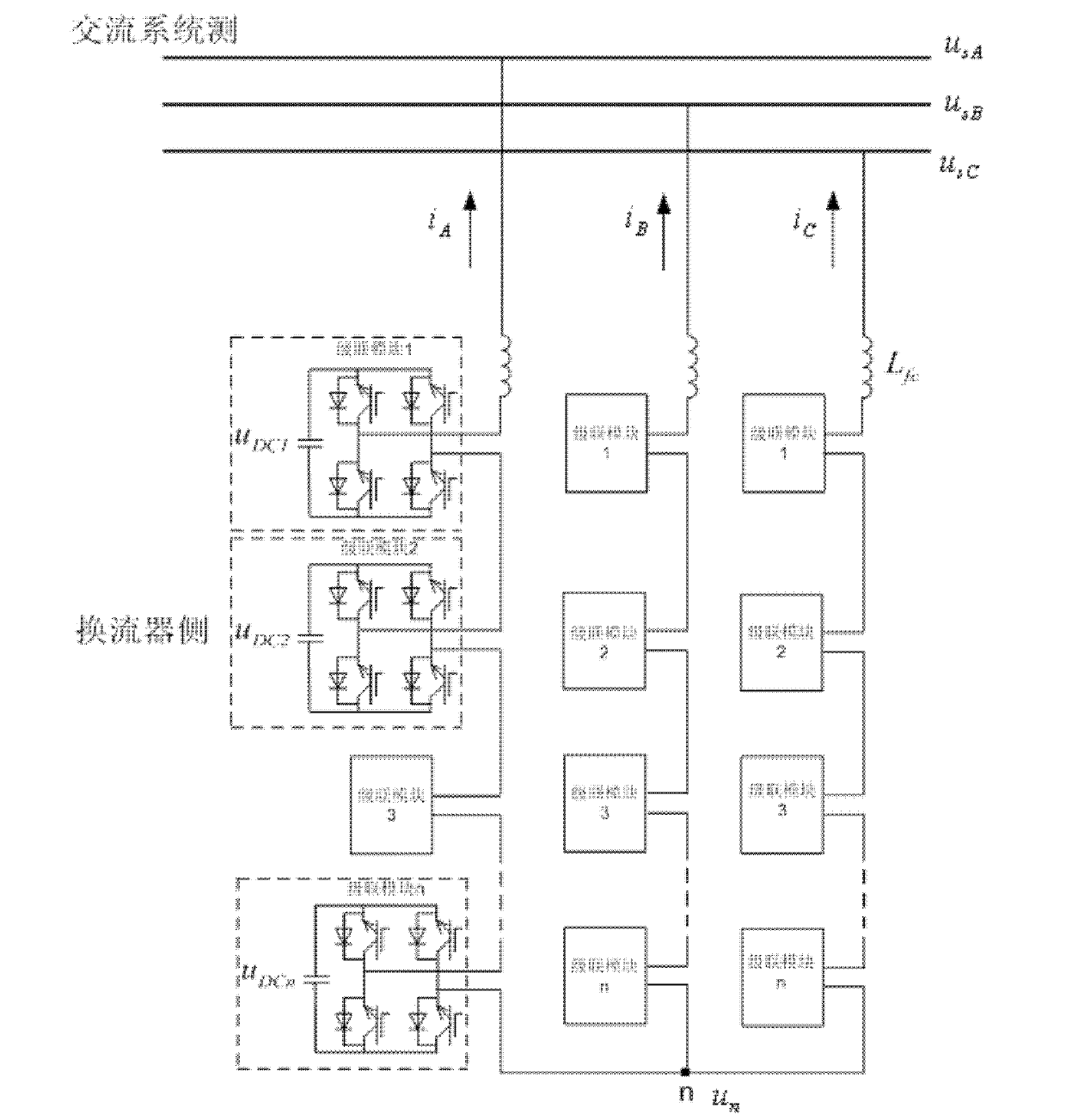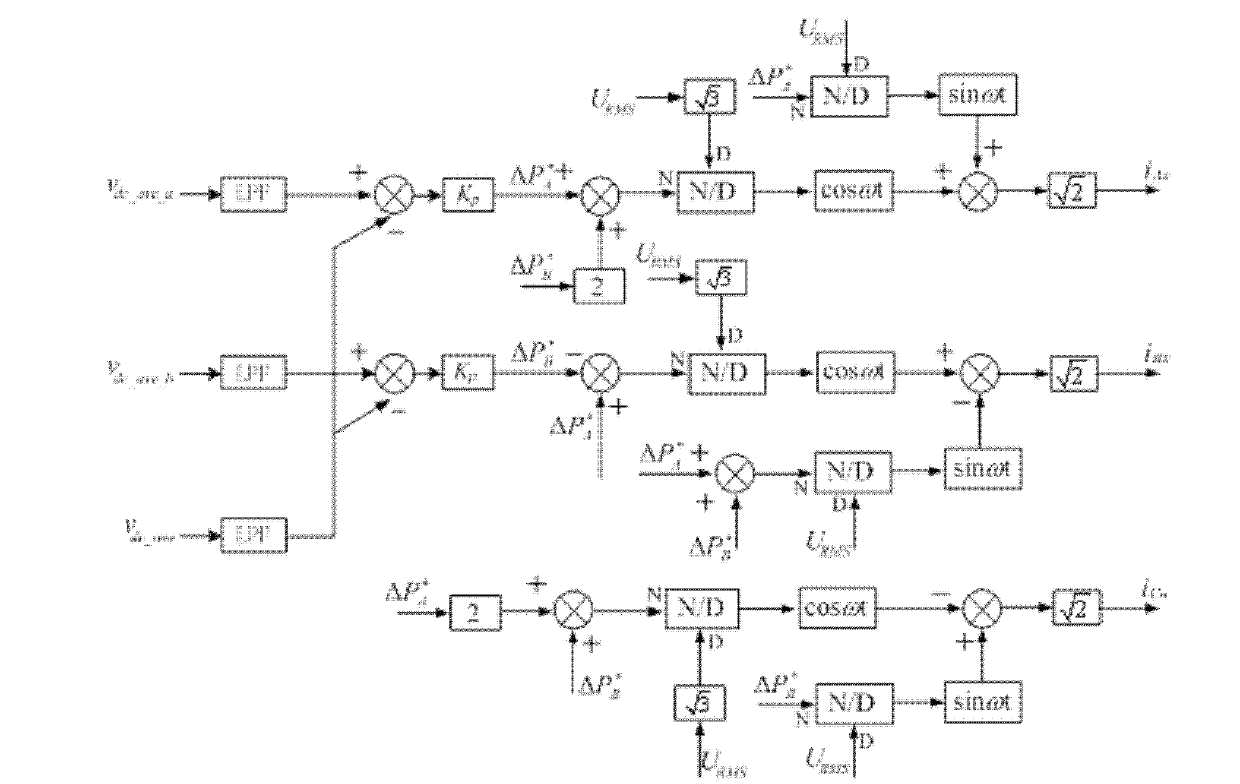Negative-sequence-current-based control method of conversion chain average direct voltage
A negative-sequence current and DC voltage technology, applied in the field of power electronic device control, can solve the problems of insignificant control effect and unclear control principle, achieve excellent control performance, wide application range, and solve the effect of average DC voltage imbalance
- Summary
- Abstract
- Description
- Claims
- Application Information
AI Technical Summary
Problems solved by technology
Method used
Image
Examples
Embodiment Construction
[0018] The control method of the present invention will be described in further detail below in conjunction with the accompanying drawings.
[0019] The system voltage, link DC voltage, and converter output current in the content are all obtained by the measurement link. When the electrical quantity signal is used to achieve the control target, it has been filtered and reduced.
[0020] In order to more clearly explain the working principle of the method for controlling the average DC voltage of the commutation chain based on the negative sequence current of the present invention, the cascaded H-bridge type STATCOM converter system is taken as an example for analysis and description. The STATCOM structure is shown in the attached figure 1 shown. Each phase is composed of N cascaded single-phase inverters with independent DC capacitors connected in series. The three-phase commutation chain adopts a star connection method. Whether the neutral point n of the converter is grounde...
PUM
 Login to View More
Login to View More Abstract
Description
Claims
Application Information
 Login to View More
Login to View More - R&D
- Intellectual Property
- Life Sciences
- Materials
- Tech Scout
- Unparalleled Data Quality
- Higher Quality Content
- 60% Fewer Hallucinations
Browse by: Latest US Patents, China's latest patents, Technical Efficacy Thesaurus, Application Domain, Technology Topic, Popular Technical Reports.
© 2025 PatSnap. All rights reserved.Legal|Privacy policy|Modern Slavery Act Transparency Statement|Sitemap|About US| Contact US: help@patsnap.com



